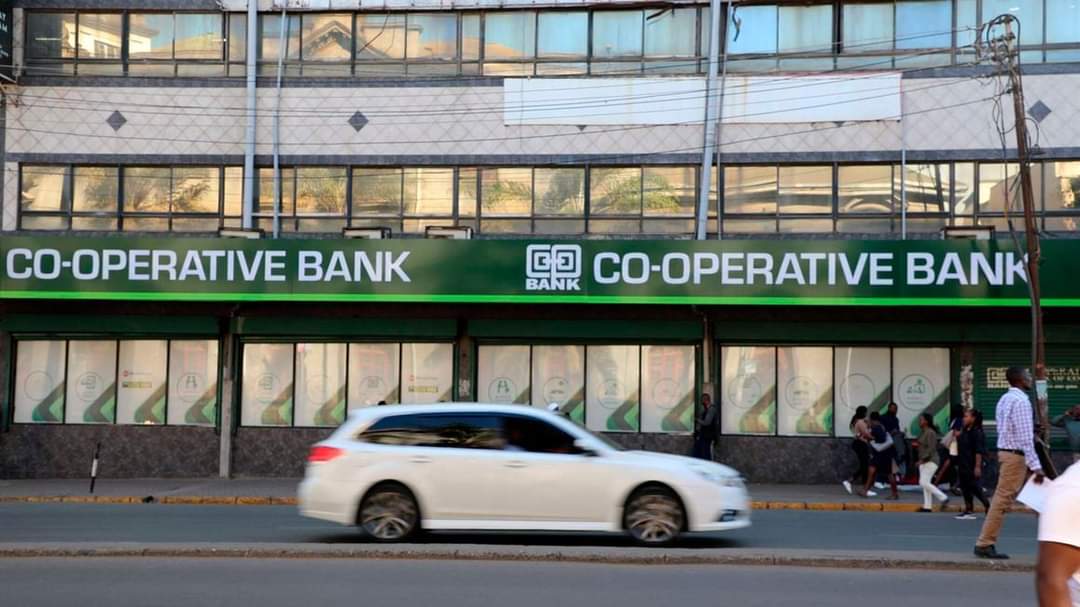Co-op Bank leads Bid to Stabilize Small Businesses against Loan Defaults
There is a timely effort by banks to cushion small businesses and stave off mass loan defaults. This comes after a three-pronged hit from the weakening shilling, dollar dearth and rising interest rates.
Convergence of these headwinds has ripped up the playbook of most lenders as they move to stave off a resurgence in non-performing loans in an economy where businesses and individuals have also been hit with new taxes.
Banks are fretting that the progress, which had been achieved in offering accommodation to business customers following the Covid-19 pandemic disruptions may go under the drain in the emergence of new and unforeseen challenges in the operating environment.
They are now reaching out to small and medium-sized enterprises (SMEs) with support packages including extending repayment periods and connecting some with affordable suppliers of imported goods.
Lenders say they are emboldened by the statistics that showed that of the 6,572 MSME loans valued at Sh122.5 billion that were restructured last year, over 90 per cent were being serviced.
“With elevated repayment in terms of ticket sizes of repayment, that is actually an extra burden on the customer. But with an elongated period in terms of loan tenors, that supports customers,” says the Kenya Bankers Association.
The consistent slump of the Kenya shilling against world majors, which has shed over 19 per cent of its value against the dollar since January, has for instance thrown into disarray many small businesses dependent on imports.
Electricity and fuel prices have also been rising, partly on the State’s stance to cut subsidies and increase taxes, catching many businesses on the wrong foot.
The weakening of the shilling and rising energy prices have coincided with a rise in the cost of credit, piling significant pressure on the margins and cash flows of small businesses.
The introduction of new taxes on both individuals and businesses has played a double-edged sword role, increasing operating costs while also weakening the purchasing power of consumers.
Bankers say these shocks have been especially damaging because they were mostly unexpected and have all converged at nearly the same time.
Lenders are worried that most borrowers if left on their own, will struggle and default in servicing their loans, heightening the spike in bad debts across the banking system.
Their interventions have come to the aid of many small businesses such as car dealers, clothing and footwear shops and manufacturers who source inputs abroad and have had to adjust their budgets upwards or cut the size of imports, even as access to dollars remains scarce.
“We are supporting MSMEs on cash flow-based restructures, by matching their loan repayments with their current business income, free of restructuring fees, on a case-by-case basis,” says Mr Gideon Muriuki, managing director at Co-operative Bank of Kenya.
Central Bank of Kenya (CBK) data already indicates a steady rise in loan defaults. Gross non-performing loans—the amount of loans on which interest and principal have not been paid for at least three months— hit Sh586.2 billion in July, a Sh10.1 billion jump from the previous month.
Lenders had endured a rise in defaults for five consecutive months to May when the figure peaked at Sh592.6 billion before cooling to Sh576.1 in June.
At Sh586.2 billion, borrowers defaulted on 14.7 per cent of the Sh3.975 trillion that banks had issued as loans by the end of July. Lenders have reacted by increasing the provisioning for loan defaults.

Banks’ weighted average interest rates have been rising over time to hit 13.5 per cent in July— the highest since March 2018 when the figure was at 13.49 per cent. This has been in line with the rising Central Bank rate.
Lenders, armed with the lessons learnt from managing COVID-19 shocks, reckon that working with customers early enough is likely to forestall a deterioration in the business performance of small firms.
Co-op Bank has been facilitating face-to-face meetings between Kenyan businesses and their sourcing suppliers abroad, for more structured negotiations.
Such engagements in countries such as Malaysia and Vietnam have helped SMEs improve the way they handle the sourcing of imports.
The tours, complemented with free expert financial literacy and coaching webinars have helped address issues such as cash flow and financial management, tax and online marketing.
“We regard today’s SMEs as the multinational corporations of tomorrow, and, therefore, commit significant resources and in addition partner with institutions that have domain expertise in enterprise development such as International Finance Corporation to support their growth,” says Mr Muriuki.
Lenders have also ramped up non-financial services activities that largely entail the hosting of customer engagement forums where expert-guided discussions are held to prepare SMEs for coping with emerging needs.
I&M Bank says it has enhanced support to small businesses in the form of unsecured business loans, local purchase order financing, invoice discounting and stock financing while also standing ready for restructures for firms that run into servicing problems.
“We now proactively engage one-on-one with such customers who are facing challenges to ensure they are running a sustainable business,” says Shameer Patel, head of retail banking at the I&M.
Banks are also increasing their focus on State-backed credit guarantee schemes to offer working capital loans at concessional rates.
KCB Bank Kenya and the Swedish International Development Cooperation Agency in August rolled out a Sh1 billion guarantee scheme for de-risking SMEs in their efforts to access credit
“The seven-year guarantee facility will enable the bank to strengthen its commitment to financing SMEs which continue to experience challenges, especially with access to affordable credit,” said KCB.
Source: Business Daily




